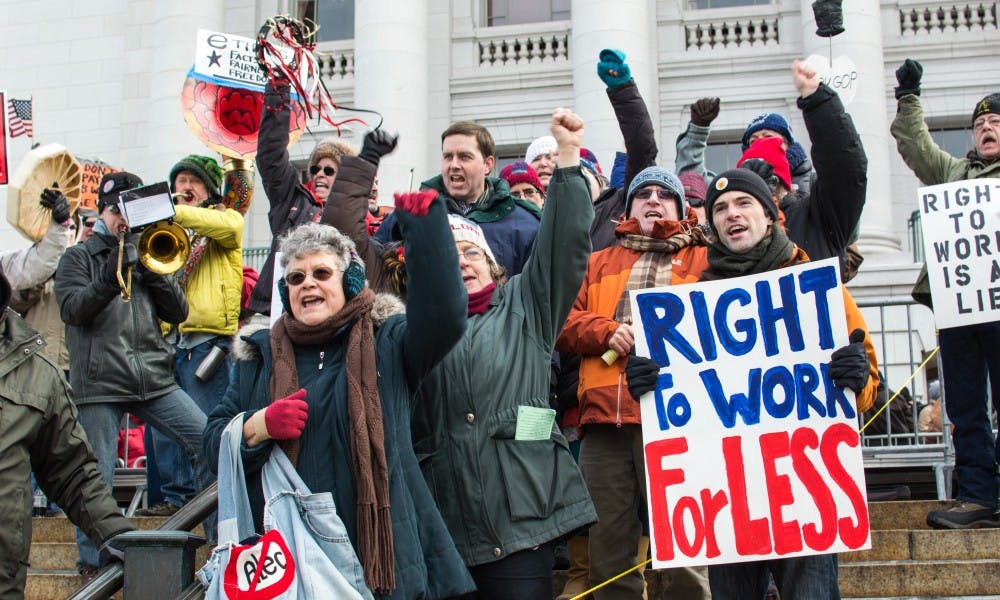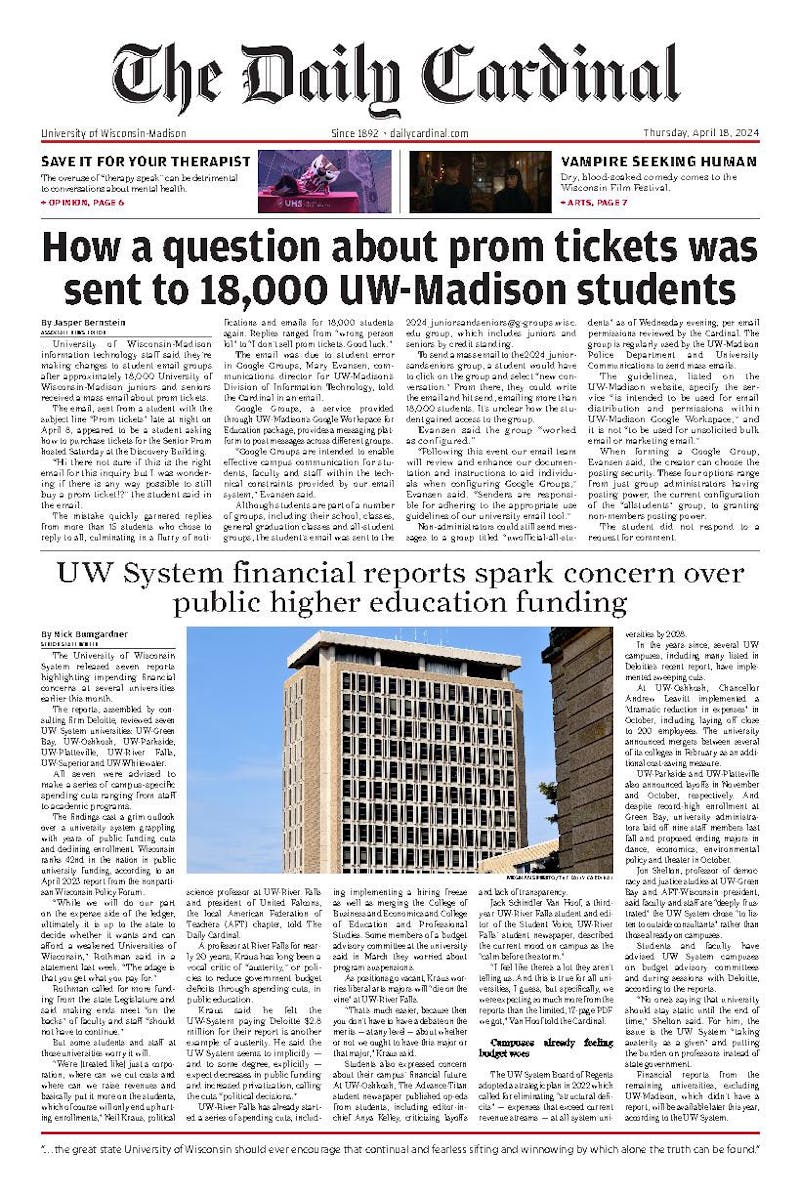A federal judge announced Monday his decision to deny a union plea to repeal Wisconsin's “right-to-work”
Three unions challenging the bill allege it is unconstitutional on the grounds that it results in an unlawful seizure of private property without fair compensation. Federal law constrains unions to represent all workers in the bargaining union while preventing them from collecting fees for representation.
Gov. Scott Walker worked with the state Legislature to pass the right-to-work law in February 2015. The law protects non-union members from being required to pay union fees, sparking union member concerns that “the nonmember of the union will reap the benefits of being represented by the union during a grievance but he will pay nothing for those benefits.”
In April, Wisconsin Appeals Court Judge William Foust struck down the law, saying it creates a “free-rider problem” for unions.
“[Unions] have a legally protectable property interest in the services they perform for their members and non-members,” Froust wrote. “When members pay their dues and non-members their fair share of fees, all would say the union is building a treasury that it holds as property.”
U.S. District Court Judge J.P. Stadtmueller's decision to strike down the appeal was largely influenced by a similar case, Sweeney v. Pence, regarding Indiana’s right-to-work law, which in 2014 was upheld despite similar opposition by unions and Democrats.
The judge expressed that the case “represents Wisconsin’s chapter in the ongoing, national debate about the role that labor unions play in the modern workplace and the extent to which they may be regulated by both state and federal governments.” Wisconsin is one of 25 states that have adopted right-to-work laws, indicating a trend toward diminishing roles of unions in the workplace.
State Attorney General Brad Schimel said he hoped the judge’s decision will “be adopted by the Wisconsin Court of Appeals in Machinists Local 1061 v. Walker, which remains pending and raises similar arguments in challenging Act 1.”






